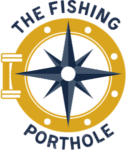

Some ocean scientists specialize in seabed formations – so they look at the shape of the bottom of the ocean, to understand where different habitats are. For example, where is it sandy or stony, and where are the drop offs. They might identify where oil deposits are, and where underwater volcanoes. These scientists are called Geological Oceanographers (or Marine Geologists)… and their work helps us know ocean depth, to understand what species might be found where, and understand seabed formations and how it interacts with different gears.
By studying wind, weather, currents, tides, it’s possible to understand patterns of light exposure and water temperature, and where water is flowing to and from. These conditions may be critical in understanding why a fish species has had an especially good or bad year for reproducing, or predicting when they might spawn or breed.
Ocean chemistry deals with the good (nutrients, oxygen) and the not so good (pollutants, too much nutrients!) chemicals that affect fisheries.
For example, understanding the nutrients and chemicals from local river inputs that support the growth of plankton – which sustain shellfish growth – but too much nutrients can cause too much plankton growth (which then use up all the oxygen), or the river may carry pollutants that make the shellfish unsuitable for human consumption (or that require expensive de-purification process). Ultimately, it’s all about balance.
For a fisherman, this is what ties it all together. Successful commercial fish & shellfish rely on plankton as the base of the marine food web. Biological oceanography looks at the marine food web and the interactions between the species living in the ocean with each other and their environment.